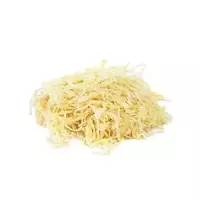Dried squid

In countries such as Japan and China, squid are the food of both wealthy and poor people. Coastal residents live off fishing and other seafood, and squid is eaten raw, pickled, baked, stuffed, fried and beyond. Tinned and undoubtedly dried squid are unusually popular.
It is no secret that squid are considered the most common and hotly loved among salt-dried seafood species. Dried squid are sold better than any such products, which today are called snacks. Among snacks, dried squid is considered a delicacy - they really are distinguished by an attractive taste and increased nutritional value.
Benefits of dried squid
To talk about the benefits of dried squid, you need, first of all, to take a closer look at the composition of fresh seafood. Thus, the squid contains many valuable mineral salts for humans: iodine, copper, iron, phosphorus, magnesium, potassium, calcium, sodium, zinc, manganese, molybdenum, cobalt, nickel. It also contains vitamins of groups B, C, as well as saturated fats and essential amino acids.
Dried squid also retains a lot of useful ones, but this directly depends on the processing technology. Manufacturers and sellers of dried squid assure consumers that in the process of industrial manufacture, useful substances are preserved to the maximum in the final product, not only full-fledged proteins, but also vitamins with amino acids, which, as a rule, are destroyed during processing.
Most consumers are well aware that the technologies used in the food industry are currently actually modern. Therefore, the benefits of dried squid, as well as the presence of elements valuable for the human body, lie with the conscience of producers.
Harms of dried squid
On the packaging of salted squid, manufacturers indicate only 2 components: squid meat and salt. However, according to numerous laboratory studies, various flavors are often present in this product, and sometimes prohibited preservatives that do not appear on the label.
By the way, dried squid supplied from Asian countries may also contain impurities. This is due to the fact that often the strongest unsanitary conditions reign in small industries. For example, in Japan, cases of exceeding the permissible dose for arsenic and some other dangerous substances were recorded.
Frequent use of snacks with a high salt content contributes to the fact that liquid is retained in the human body and salts are deposited - this indicates the likely harm of salted squid. In addition, the calorie content of dried squid is quite high - 286 kcal per hundred grams, so you should not abuse this product either.
dried squid 286 kCal
Energy value of dried squid (Ratio of proteins, fats, carbohydrates - ju):
Proteins: 62 g (~ 248 kCal)
Fats: 2g (~ 18kCal)
Carbohydrates: 5g (~ 20kCal)
Energy ratio (bj | y): 87% | 6% | 7%
 Español
Español Français
Français Português
Português Русский
Русский 简体中文
简体中文 繁體中文
繁體中文 日本語
日本語 한국어
한국어 العربية
العربية Türkçe
Türkçe Қазақ
Қазақ Deutsch
Deutsch Italiano
Italiano Українська
Українська
